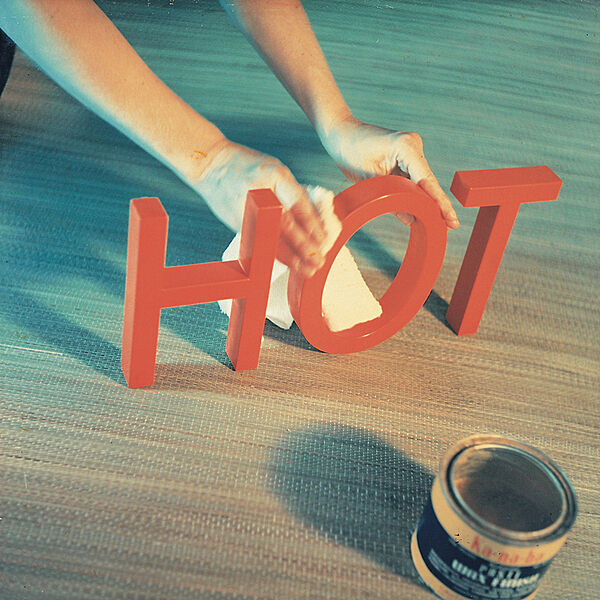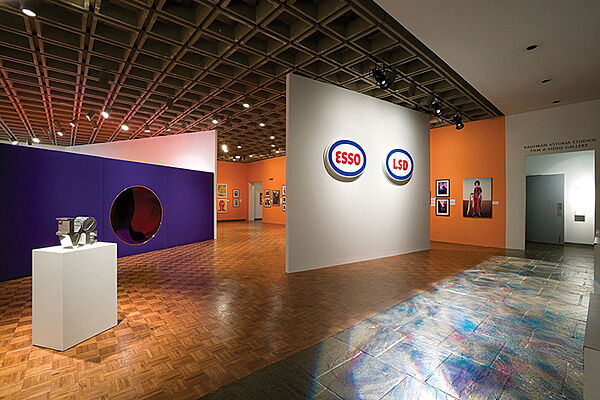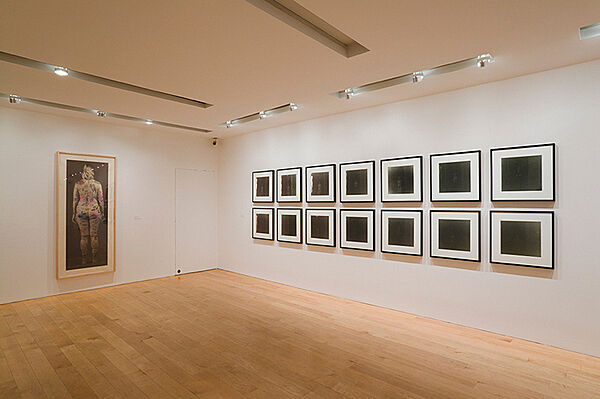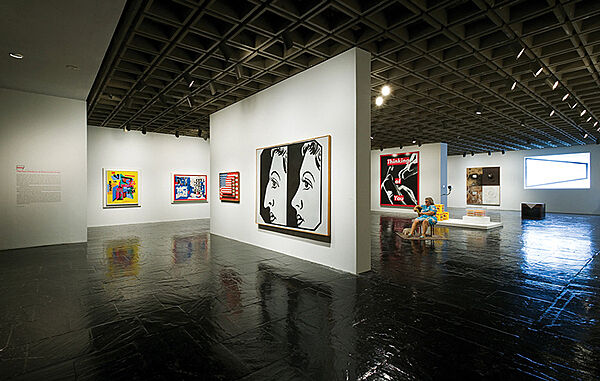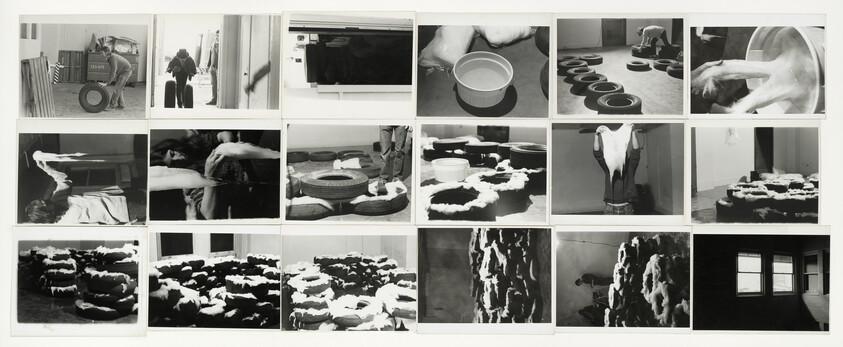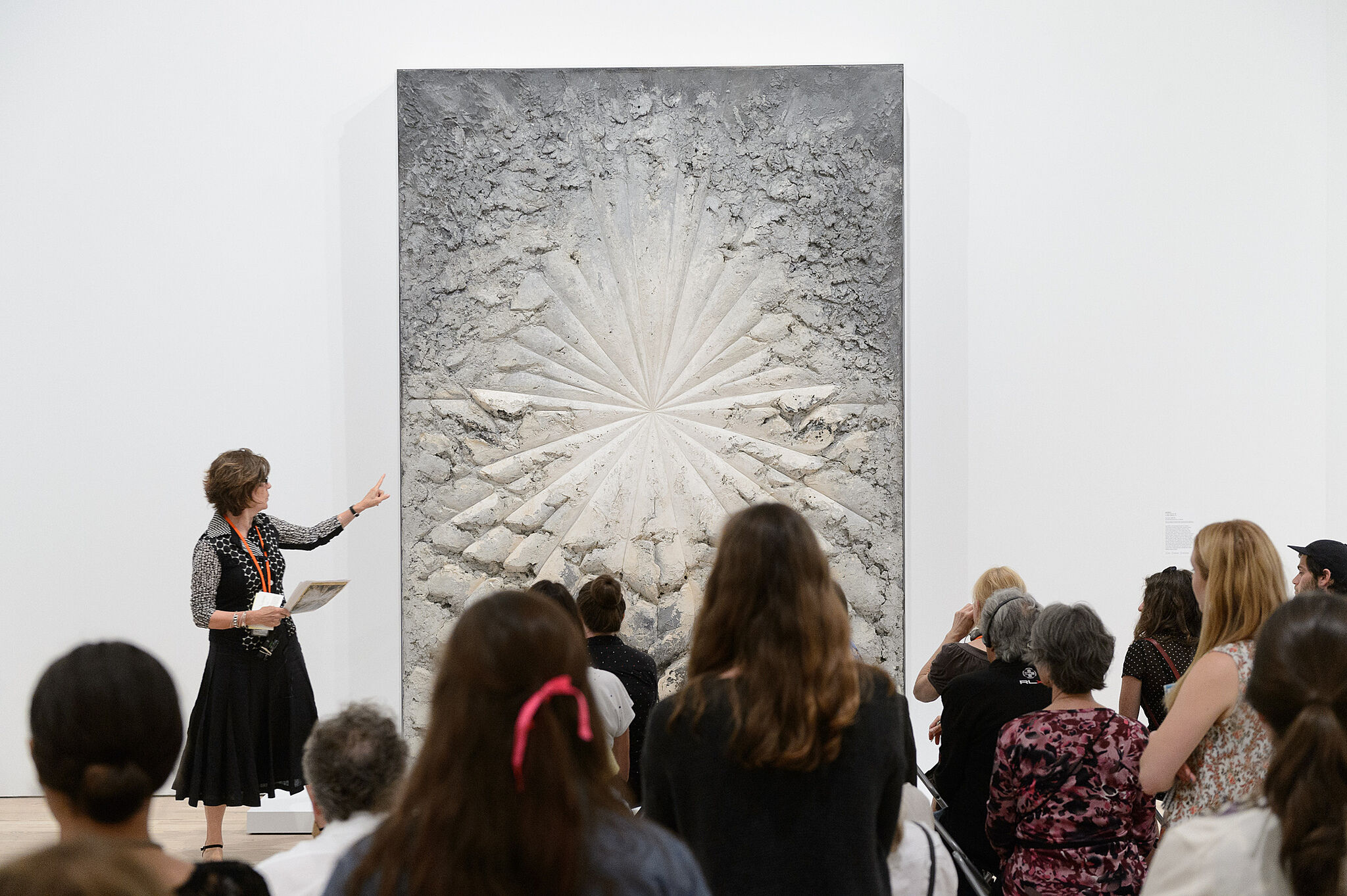Adrian Piper
1948–
Since the late 1960s Adrian Piper has worked across a range of mediums, including photography, performance, video installation, and text-based projects, to confront thorny social and political issues in American culture such as race and gender. Drawing on her training in philosophy, Piper engages reasoned argument and her own biography to induce audiences to consider their unexamined prejudices and questions of personal identity.
Food for the Spirit, a performative project she conceived in summer 1971, arose as she was obsessively reading Immanuel Kant’s Critique of Pure Reason (1781) while secluded in her New York loft and following a severely restricted diet. She became so engrossed in her study that she began, as she recounted, to “go to my mirror to peer at myself to make sure I was still there.” To counter the feeling that she was disappearing she photographed the reflection of her body, often fully nude, while recording herself reciting the passages from Kant’s Critique that were “driving [her] to self transcendence.” Piper has explained that the ritualistic project helped her “to anchor [herself] in the physical world.” Although the taped recitations were inadvertently erased in the mid-1970s, Piper printed and publicly exhibited the fourteen apparitional, black-and-white self-portraits in 1997 as an extension of her conceptual project.
Piper maintains that even when her works contain a confrontational message, the process of establishing trust with her audience “requires a kind of self disclosure.” Her installation Out of the Corner features a barricade-like configuration of sixteen video monitors arranged on hollow pedestals in which overturned chairs have been placed, their metal legs pointing at the viewer. This phalanx of monitors seems to guard a single monitor that is positioned behind an upended table in the corner of the room and flanked by sixty-four black-and-white images of various black women, rephotographed from Ebony magazine, on the adjacent walls. On the corner monitor Piper delivers a text on miscegenation, explaining that members of her audience who identify as white may very well have black ancestors. During her monologue, each of the sixteen other monitors—at random and sequential intervals—presents the image of an apparently white man or woman. With the Sister Sledge song “We Are Family” providing a musical backdrop, each of the talking heads recites the same utterance in turn: “Some of my female ancestors were so-called house niggers who were raped by their white slave masters. If you are an American, some of yours probably were, too.” The phrase is subtitled beneath the speakers’ faces in a variety of foreign languages. This haunting array of skin tones, genders, and languages combines to underscore the socially constructed aspects of race and promote a social consciousness of identity.
Introduction
Adrian Margaret Smith Piper (born September 20, 1948) is an American conceptual artist and Kantian philosopher. Her work addresses how and why those involved in more than one discipline may experience professional ostracism, otherness, racial passing, and racism by using various traditional and non-traditional media to provoke self-analysis. She uses reflection on her own career as an example.
Piper has been awarded various fellowships and medals and has been described as having "profoundly influenced the language and form of Conceptual art". In 2002, she founded the Adrian Piper Research Archive (APRA) in Berlin, Germany, the focus of a foundation that was established in 2009.
Wikidata identifier
Q373948
Information from Wikipedia, made available under the Creative Commons Attribution-ShareAlike License . Accessed February 14, 2026.
Country of birth
United States
Roles
Artist, conceptual artist, installation artist, performance artist, photographer
ULAN identifier
500024467
Names
Adrian Piper, Adrian Margaret Smith Piper
Information from the Getty Research Institute's Union List of Artist Names ® (ULAN), made available under the ODC Attribution License. Accessed February 14, 2026.


